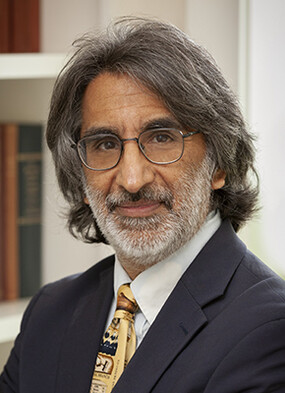In the aftermath of the 2024 presidential election, academics and policymakers have begun to speculate on how a second Donald Trump administration will affect U.S. policy at home and abroad. As Davidson community members reflect on what the next four years will bring, professors offer their insight into what Trump means for various policy areas.
Environmental Policy:
Associate Professor of Political Science Dr. Graham Bullock predicts Trump will immediately attempt to alter climate policies passed by the outgoing Biden administration. “I think the most obvious and likely changes will be related to climate change regulations and funding specifically under the Inflation Reduction Act.”
Trump’s administration will need to reckon with how rolling back the IRA, which was created to help the U.S. reach its climate goals, and other environmental regulations might come into conflict with the traditional Republican commitment to some basic level of environmental protections.
“I think Donald Trump and the Republican Party do talk a lot about valuing clean air and clean water, and so there may be a sort of disaggregation of the environment […] where things that are perceived as [environmental issues] are not rolled back as much as things related to climate change,” Dr. Bullock said.
If the Trump administration does pass climate-friendly legislation, especially related to nuclear or renewable energy, it will likely be called by a different name. “To the extent that there is some recognition of the impact of climate change, it won’t necessarily be direct or explicit, but couched in the terms of economic development and opportunity, and these so-called co-benefits of climate-related investments,” Dr. Bullock said.
Ultimately, the stakes of a second Trump administration for environmental policy are clear. “The stakes are highest in the context of climate change, where there’s been, I think, by all accounts, an enormous amount begun and already implemented by the Biden administration, and that will most likely come to a screeching halt,” Dr. Bullock concluded.
Relations with Latin America:
Associate Professor of the Practice in Political Science Dr. Britta Crandall explained that recent U.S. policy toward Latin America has been bound by a common theme. “Latin American scholars would say one thing stays consistent, which is this benign neglect or less than benign neglect of the region, and this tendency to perceive the region through the lens of immigration and drugs.”
Under the Obama and Biden administrations, the U.S. sought to engage with Latin American partners through multilateral diplomacy on topics ranging from trade to human rights to security. Dr. Crandall expects the Trump administration to focus heavily on immigration and drugs.
“The difference is right now we’re in a world in which those two priorities will be the only priorities, and all other elements of bilateral relationships will be seen transactionally […] whereas, I would say more broadly speaking, there’s at least been lip service paid to notions of multilateral approaches [under previous administrations],” Dr. Crandall said.
“[Democrat] administrations tend to have embraced that kind of win-win approach toward the region, toward trade, whereas more recent Republican administrations have seen it much more as a zero-sum game,” Dr. Crandall said.
In the wake of an increasingly isolationist and transaction-oriented U.S., many Latin American countries have increased trade relations with China. By some figures, two-way trade between the region and China has grown from $18 billion in 2002 to $450 billion in 2022—and is expected to continue to increase.
Dr. Crandall notes that this may create an interesting dynamic for U.S. relations with Mexico, especially because the USMCA free trade agreement, which aims to create a balanced trade environment between the U.S., Mexico, and Canada, will be renegotiated in 2026. “One area that is going to be interesting to see, specifically now because it’s so contentious, is the Chinese role in the Mexican economy, [which is perceived as] a backdoor into [USMCA],” Dr. Crandall said.
Despite Trump’s isolationist tendencies, he may be forced to pick his battles and work with his southern neighbor.
“The last thing that the United States wants is to push Mexico, or any other country, closer to the Chinese sphere, which is very clearly against US interests,” Dr. Crandall said.
Relations with Europe:
To Chair & Associate Professor of Political Science Dr. Besir Ceka, tensions will emerge with European countries, primarily over NATO support for Ukraine. “Trump will certainly jolt the alliance, certainly will pressure Ukraine to negotiate, and it’s unclear to me where that process will end and to what extent Putin might or might not change the calculus of the U.S. administration.”
“I know it’s very clear the Republicans in general, but especially the Trump people, have no interest in continuing to support Ukraine,” Dr. Ceka said. “Trump is [unwilling] to buy into the shared values argument, and that will certainly hurt America’s image and ability to influence politics internationally. American foreign policy has been at least clothed, historically, with this liberal rhetoric.”
Instead, Dr. Ceka expects Trump to adopt a more explicitly transactional approach. “[Trump] has made it very clear that what he cares about is, at least when it comes to foreign policy, ‘What is the bottom line for America? Are they taking advantage of us?’ He’s very allergic to perceptions that allies are taking advantage of America, so it is very transactional, and it does put into question the value-driven approach that NATO and the EU have.”
Nevertheless, Dr. Ceka is confident U.S.–European relations will withstand the tensions of the incoming administration. “[European allies] were not thrilled with the Trump presidency the first time around, and they’re certainly not thrilled with another Trump presidency now. However, I get the sense that the vibe is one of ‘we will weather this one out,’ in part because they now know Trump better than they did in 2016.”
Reproductive Rights:
Abortion rights ballot measures were voted on in ten states and passed in seven during this election cycle. Despite this, many of those same states voted for Trump. This phenomenon is of interest to Professor of Political Science Dr. Susan Roberts. “What was curious is all of those victories […] that put access to abortion in [state constitutions] didn’t translate into a Harris win.”
To Dr. Roberts, the Trump administration’s playbook is clear. “The best place to look at what’s going to happen for reproductive rights is right in front of us, and that is Project 2025 as well as Agenda 47, which was the Republican Party platform. It is similar in many respects to Project 2025 and they share a move for restricting access to abortion, in particular […] mifepristone.” Mifepristone is a drug that blocks a hormone called progesterone that is needed for a pregnancy to continue.
Dr. Roberts was skeptical about whether or not Trump’s recent comments about a federal abortion ban have been truthful. “Trump dismissed the question of whether or not he would vote for a national ban on abortion by saying it would never come up. And that, I think, there’s no guarantee [of]. He can’t say that with any certainty now that you have the trifecta [of Republicans controlling the Presidency, Senate, and House of Representatives].”
“When he dismissed [the possibility of a federal abortion ban] with that comment, that’s no longer relevant. I cannot see that the new House and the new Senate would pass on that one,” Dr. Roberts continued. However, it should be noted that Trump did vow to veto any federal abortion ban in a post during the vice presidential debate on October 1st, stating that the decision is up to individual states.
Welfare Programs:
To Professor of the Practice in Communication Studies Issac Bailey, the Trump administration’s approach to welfare is consistent with national trends since the Clinton administration.
“From what I’ve seen, [the trend in] welfare policy since the ‘90s has been to make it harder for individual, needy people to get [support] even if the money has been allocated. The red tape is extremely difficult to get through […] At the individual level, a lot of poor people can’t get through the process to be able to receive the money they are entitled to, and so states often use that money for other purposes,” Bailey said in an email inquiry.
Bailey expects Trump’s first priority to be extending tax cuts passed during his first term. “Everyone saw national income taxes fall because of those cuts, but the cuts were heavily weighted to benefit the wealthy more than anyone else. I don’t see that changing this time around.”
If extended, Trump’s tax cuts would likely force the government to cut funding for welfare programs. “The incoming Trump administration was already thinking of ways to offset those tax cuts so it wouldn’t drive up the deficit even more than the first round did. The targets for spending cuts? Welfare programs such as Medicaid and the like,” Bailey continued.
Criminal Justice:
According to a recent report by the ACLU, Trump’s incoming administration is likely to accelerate mass incarceration, further dehumanize incarcerated people, and reverse reforms made over the past two decades. Bailey agrees with this characterization.
“Trump has said he regrets the reform he agreed to during his first term, a reform that was led by Democrats. He says he wants to bring back the discriminatory stop-and-frisk policies that targeted Black and Brown young men much more than others. He says he wants to make it harder for the Department of Justice to investigate police departments accused of brutality and the like,” Bailey said.
On top of efforts to dismantle welfare programs and roll back decades of criminal justice progress, Bailey also warns the Trump administration may resort to inflammatory and racist rhetoric in an attempt to gain support for his policies.
“Race is transactional for Trump. If he thinks falsely claiming Haitian immigrants are eating people’s pets will lead to votes, he’ll say that. If he thinks saying he is for diversity will lead to votes, he’ll say that. I don’t expect Trump to be anything other than the man who kicked off his 2016 campaign saying Mexican immigrants are rapists,” Bailey said.






































